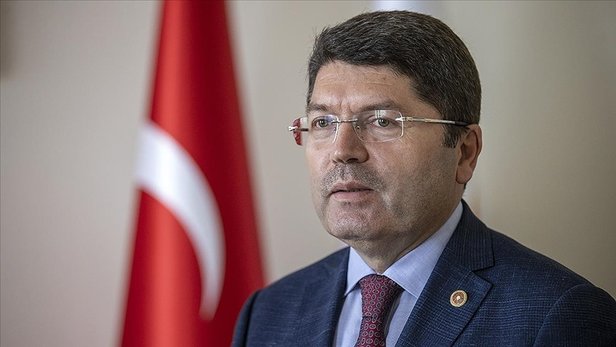Turkish Minister of Justice Yılmaz Tunç on Thursday said the European Court of Human Rights (ECtHR) judgment on a former teacher’s conviction on links to the Gülen movement does not set a precedent to be applied in similar cases, defying expectations of legal experts and the Strasbourg court, the Stockholm Center for Freedom reported.
“Each case has its specificities,” Tunç told reporters in Ankara. “We will be able to make a more comprehensive statement when the detailed ruling reaches us, but we can say now that the verdict does not set a precedent.
“We say that the ECtHR should not examine the evidence. We do not claim that the evidence is the crime itself. The crime is terrorism and the evidence is used to prove the individual’s ties to terrorism.”
The ECtHR court on Tuesday delivered its ruling on Yüksel Yalçınkaya, a former teacher convicted of Gülen links due to his alleged use of a mobile application, his bank account and labor union membership. The court concluded that Yalçınkaya’s conviction violated several legal principles enshrined in the European Convention on Human Rights, namely the right to a fair trial, the principle of no crime without law and the right to association.
The Strasbourg court also criticized Turkey’s widespread use as evidence of the mobile messaging app ByLock as broad and arbitrary, lacking necessary safeguards for a fair trial. Additionally, the court pointed out significant procedural deficiencies in Yalçınkaya’s trial, including not granting him access to evidence or allowing the independent examination of data.
Minister Tunç’s remarks were in contrast to the ECtHR ruling, which described the violations in Yalçınkaya’s case as part of a wider systemic problem.
The ruling is expected by legal experts and human rights defenders to have an impact on the conviction or trial of thousands of people who face terrorism charges due to their affiliation with the Gülen movement, a faith-based group accused by the Turkish government of masterminding a failed coup in 2016 and labeled as a terrorist organization. The movement strongly denies involvement in the abortive putsch or any terrorist activity.
On Thursday legal expert Hakan Kaplankaya told Bold Medya in an interview that the judgment means the court expects Turkey to address its systemic failure, either by changing the courts’ interpretation of the law or by amending its laws, in order to prevent thousands of similar cases from arriving at Strasbourg.
“It is a judgment that is binding on the Turkish justice system, and it needs to be implemented immediately,” Kaplankaya said, adding that the only remedy in criminal justice is retrial.
Kaplankaya said people in Turkey with similar pending trials should petition the courts based on the ECtHR judgment, and those who were convicted should demand retrial as soon as next week.
Turkey has famously refused to implement ECtHR orders for the release of businessman Osman Kavala and Kurdish politician Selahattin Demirtaş. But the Yalçınkaya judgment comes as a stark departure from such prior cases, which focused primarily on detention decisions, addressing the merits of the conviction instead.
Turkey was ranked 116th among 140 countries in the rule of law index published by the World Justice Project (WJP) in October 2022. The country saw the purge of more than 4,000 judges and prosecutors following the coup attempt. The purge of so many members of the judiciary is seen by many as an attempt by President Recep Tayyip Erdoğan to redesign the Turkish judiciary and fill it with pro-government judges and prosecutors.
Following the abortive putsch, the Turkish government declared a state of emergency and carried out a massive purge of state institutions under the pretext of an anti-coup fight. More than 130,000 public servants, including 4,156 judges and prosecutors, as well as 24,706 members of the armed forces, were summarily removed from their jobs for alleged membership in or relationships with “terrorist organizations” by emergency decree-laws subject to neither judicial nor parliamentary scrutiny.



